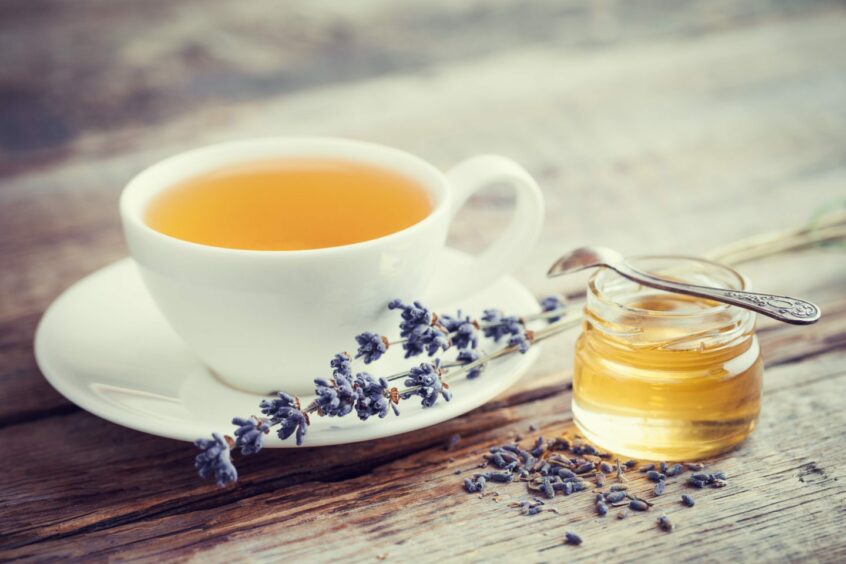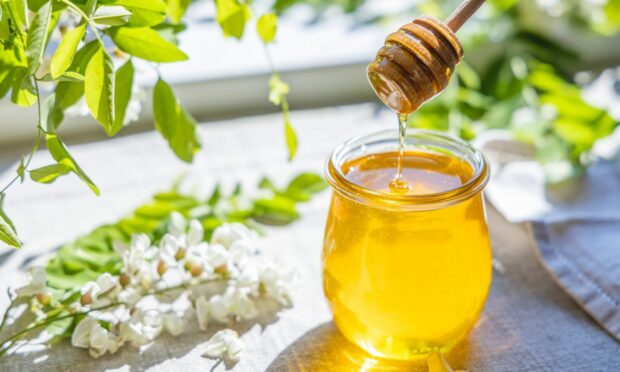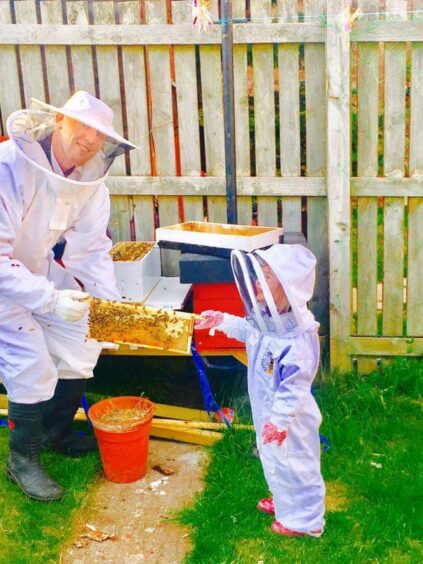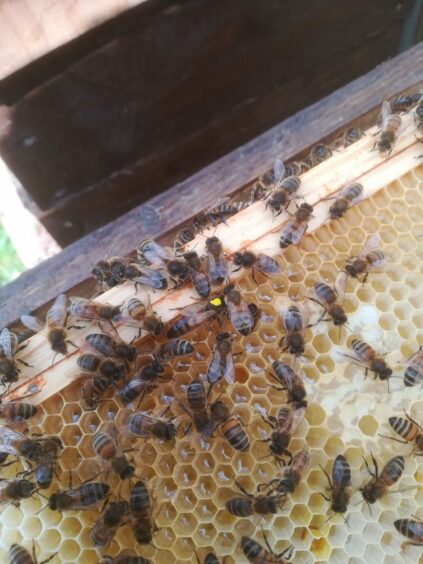It’s great on toast, or in your cup of tea, but did you also know honey has some great health benefits too?
Honey has been an integral part of medicine throughout history, thanks to its antibacterial properties. And we know more now than ever before about the benefits of this superfood.
Our Fife experts share the top reasons you should always have honey in your cupboards.
1. It’s antibacterial
In medicine, honey has been used in the treatment of surface wounds, burns, and inflammation. It even has antiseptic properties.
It can also help with tissue repair and reduces scarring.
Michael Richardson is a beekeeper from Glenrothes, who keeps hives around Fife.
He says: “Honey is antibacterial and antifungal. It absorbs moisture from its surroundings.
“When you put honey on sores or wounds, any bacteria that’s in the area, it absorbs the water from the cells.
“It essentially dehydrates any bacteria that could be near an open wound.
“It was used historically in medicine – in wars and other situations where you’re at high risk of contracting an infection through cuts.”
So, if you cut yourself and can’t find any plasters around, a dab of honey on your wound should help it heal.
2. It can help with stomach infections
Antioxidants are substances that can prevent or slow damage to cells caused by free radicals, unstable molecules the body produces as a reaction to environmental and other pressures.
Antioxidant compounds in raw honey called polyphenols have anti-inflammatory effects.
This could be beneficial in protecting against a number of conditions associated with oxidative stress, such as diabetes or some cancers.
Keren Brynes MacLean owns Health Food and More in Kirkcaldy.
She says: “A lot of people use manuka honey to help treat stomach infections, gastritis and inflammation.
“It can also be used for immune support and some people swear by it for getting over viral infections.”
3. It can help with hay fever
While there’s no scientific evidence to support honey as a cure for hay fever, some swear by it.
According to the Scottish Bee Company, “When someone consumes ‘local honey’, many believe you are also taking in the local pollen with it, and over a period of time, they might not be as sensitive to it.”
Keren says many customers come into the store to buy honey in time for hay fever season.
She explains: “I don’t know about clinical evidence, but there’s lots of anecdotal evidence of people using it and feeling the benefits.

“I think the idea is you’re almost getting a microdose of pollen when you eat the honey, which could potentially build up your tolerance.”
So, whether it actually works or simply provides a placebo effect, honey could be the cure for your allergies this hay fever season.
4. It can improve heart health
According to clinical trials, honey may help lower blood pressure, improve blood fat levels, regulate your heartbeat, and prevent the death of healthy cells.
These are all factors thought to help prevent heart disease.
Additionally, raw honey contains propolis, a type of resin that bees produce from sap-producing trees and similar plants.
Propolis may improve cholesterol and triglyceride levels, which can help heart health, too.
5. It can soothe a sore throat
Adding honey to a cup of tea or eating a spoonful of it when you have a cold or sore throat can have soothing properties.
The anti-inflammatory properties of honey can help heal a sore throat and aid with coughs, too.

Honey has so many benefits. But as with everything, it shouldn’t be consumed in excess, as Michael warns.
“Honey, generally speaking, has high sugar content. Although it is beneficial in many ways, it should be consumed in moderation.”













Conversation